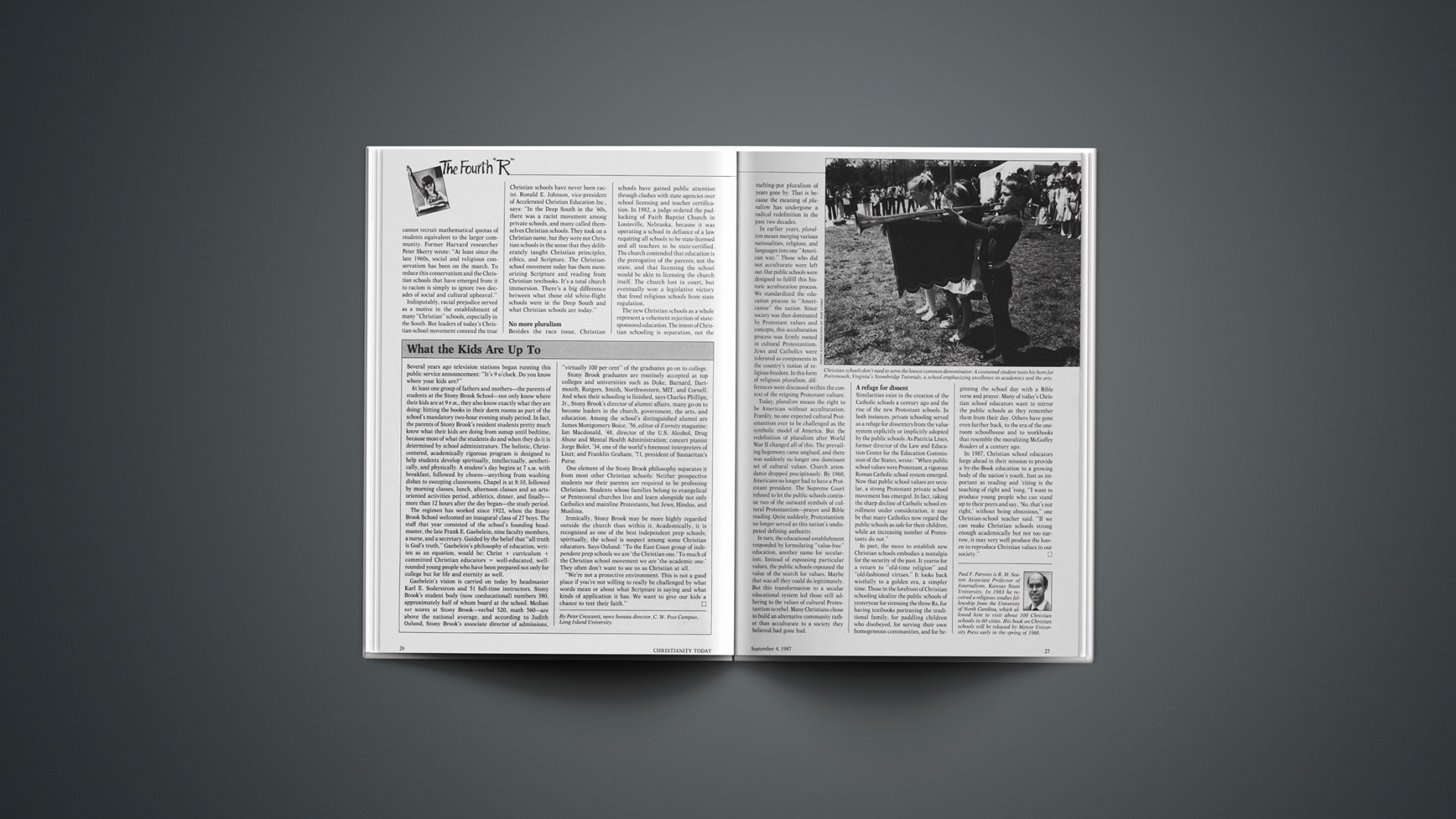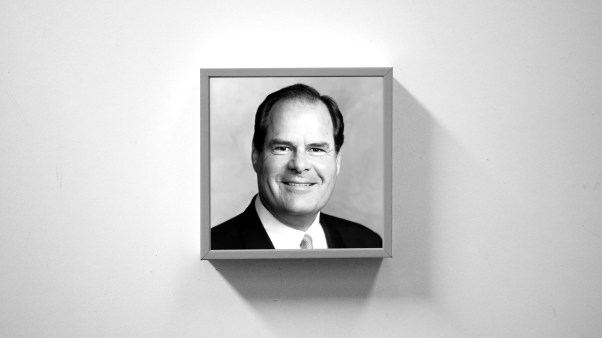Several years ago television stations began running this public service announcement: “It’s 9 o’clock. Do you know where your kids are?”
At least one group of fathers and mothers—the parents of students at the Stony Brook School—not only know where their kids are at 9 P.M., they also know exactly what they are doing: hitting the books in their dorm rooms as part of the school’s mandatory two-hour evening study period. In fact, the parents of Stony Brook’s resident students pretty much know what their kids are doing from sunup until bedtime, because most of what the students do and when they do it is determined by school administrators. The holistic, Christ-centered, academically rigorous program is designed to help students develop spiritually, intellectually, aesthetically, and physically. A student’s day begins at 7 A.M. with breakfast, followed by chores—anything from washing dishes to sweeping classrooms. Chapel is at 8:10, followed by morning classes, lunch, afternoon classes and an arts-oriented activities period, athletics, dinner, and finally—more than 12 hours after the day began—the study period.
The regimen has worked since 1922, when the Stony Brook School welcomed an inaugural class of 27 boys. The staff that year consisted of the school’s founding headmaster, the late Frank E. Gaebelein, nine faculty members, a nurse, and a secretary. Guided by the belief that “all truth is God’s truth,” Gaebelein’s philosophy of education, written as an equation, would be: Christ + curriculum + committed Christian educators = well-educated, well-rounded young people who have been prepared not only for college but for life and eternity as well.
Gaebelein’s vision is carried on today by headmaster Karl E. Soderstrom and 51 full-time instructors. Stony Brook’s student body (now coeducational) numbers 380, approximately half of whom board at the school. Median SAT scores at Stony Brook—verbal 520, math 560—are above the national average, and according to Judith Oulund, Stony Brook’s associate director of admissions, “virtually 100 per cent” of the graduates go on to college.
Stony Brook graduates are routinely accepted at top colleges and universities such as Duke, Barnard, Dartmouth, Rutgers, Smith, Northwestern, MIT, and Cornell. And when their schooling is finished, says Charles Phillips, Jr., Stony Brook’s director of alumni affairs, many go on to become leaders in the church, government, the arts, and education. Among the school’s distinguished alumni are James Montgomery Boice, ’56, editor of Eternity magazine; Ian Macdonald, ’48, director of the U.S. Alcohol, Drug Abuse and Mental Health Administration; concert pianist Jorge Bolet, ’34, one of the world’s foremost interpreters of Liszt; and Franklin Graham, ’71, president of Samaritan’s Purse.
One element of the Stony Brook philosophy separates it from most other Christian schools: Neither prospective students nor their parents are required to be professing Christians. Students whose families belong to evangelical or Pentecostal churches live and learn alongside not only Catholics and mainline Protestants, but Jews, Hindus, and Muslims.
Ironically, Stony Brook may be more highly regarded outside the church than within it. Academically, it is recognized as one of the best independent prep schools; spiritually, the school is suspect among some Christian educators. Says Oulund: “To the East Coast group of independent prep schools we are ‘the Christian one.’ To much of the Christian school movement we are ‘the academic one.’ They often don’t want to see us as Christian at all.
“We’re not a protective environment. This is not a good place if you’re not willing to really be challenged by what words mean or about what Scripture is saying and what kinds of application it has. We want to give our kids a chance to test their faith.”
By Peter Crescenti, news bureau director, C. W. Post Campus, Long Island University.










